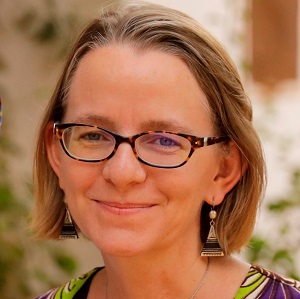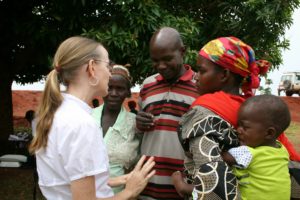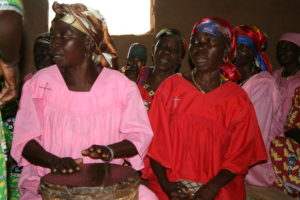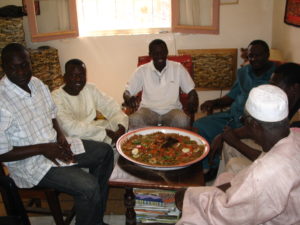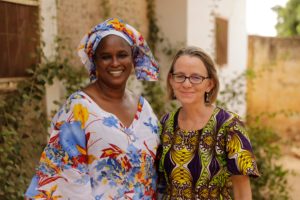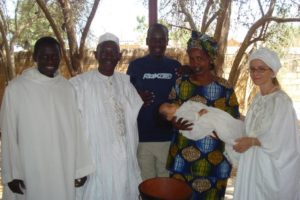Mission Stories: Knowing Whose We Are by Anne Ruedisili Langdji
At one of many worship services that commemorated the 500th anniversary of the Reformation, Presiding Bishop Elizabeth Eaton of the Evangelical Lutheran Church in America made this statement about European-American Lutherans: “We trust more in who we are than in whose we are.” I am one of those. Raised as a Lutheran pastor’s kid in the United States, my Christian education was solid. Yet, it is the experience of spending a good portion of my life living and working outside of my culture, outside of my country, that has made me more aware of the truth of this statement.
The Central African Republic (CAR) is a country that most people in the US don’t know exists. If they do, it might be because of the insecurity and violence that has been raging the past four years. They don’t know that it is a country of mainly cattle herders and farmers, which had the first woman prime minister, which is rich with diamonds, minerals and timber. At the same time, CAR is a country with some of the poorest human indicators (such as maternal mortality, literacy, access to healthcare and so on), and people still hold a strong belief in supernatural powers. I can tell too many stories about instances of neighbor accusing neighbor, an attempt to explain for the death of a young mother, of a child, of a hard-working seemingly-healthy man. Other cases include accusations to bring down someone who farms too well, succeeds in their ventures, has healthy children. They must be using witchcraft! They must bring people back to life at night to work their fields! In this context, I continue to marvel at the strong faith of some friends who have not let such attempts pull them down. Despite the jealousies that might lead neighbors to make accusations, they work hard to live better, to provide for their children and to help their community. They still likely believe in the supernatural in a way I don’t, but they know whose they are and do not let fear bring them down or dominate them. And they are models for me and others.
The community where we lived in Senegal was 99.9% Muslim. The handful of Christians were transplanted Catholics from other regions of the country—and about 50 Fulani who were new to the faith, had become Christian, who included both adults and their children. We were cared for in that place, by all. Our son was born while we lived there, and baptized there. The baptism service was typical for Linguere Christians: a joint Catholic-Lutheran service with the visiting priest from a couple towns away and several Lutheran pastor colleagues, as well as my Dad. The godparents included friends in the US—a Central African and an American—who weren’t present, and a Senegalese Fulani Christian couple who were. But the party? That was more Senegalese-Muslim style. Willie provided the cow, but the work and celebration was taken over by those who had come to see us as family, those who may not have shared our faith, but who certainly knew whose they were and whose our son is! We all celebrated together. A name of one of our neighbors was also given to our son, symbolically, and some still call him by that retired nurse’s name. I still reflect on the faith of those we knew in Senegal, whether the small Lutheran community, the older Catholic community, or the Muslims in their own diverse groups.
Although you don’t have to leave your culture, your hometown or your country to grow and experience fully the freedom we know comes from Christ, my spiritual growth results from meeting and developing relationships with those whose life experiences and beliefs are quite different from mine. And I know that just one of the things I have gained from my experiences is the realization that those who know whose they are are found in so many places, and they can all help us all to know whose we are.
Anne Ruedisili Langdji is a Lutheran from the US who serves as Regional Representative of the Evangelical Lutheran Church in America Global Mission, for Madagascar, West and Central Africa along with her husband, Willie, who is a Catholic Cameroonian. They live in the capital of Cameroon, Yaounde, with their primary school age son. Anne’s work keeps her traveling and learning about herself and others. She finds it a privilege to represent her church in its relationships with churches and organizations in the region, and yet misses more day-to-day engagement in public health work.

